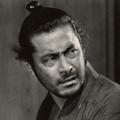Robin Marx reviewed The World Without Us by Alan Weisman
Review of 'The World Without Us' on 'Goodreads'
4 stars
This intriguing book attempts to elaborate on the various ways Earth would be impacted if humankind were to suddenly vanish. The results of this thought experiment are a mixed bag, with some of the environmental damage and visible impact caused by humans fading relatively quickly, while other results of humanity's reign (particularly consequences associated with nuclear waste) having repercussions lasting for geological epochs. The end result is a planet that is not necessarily better or worse off for the lack of human habitation, but one very different from its current state.
Given the vast scope of the topic, the book feels necessarily a bit unfocused. Most chapters introduce a general question ("What happens to X without humans around?"), then the story's "lens" progressively zooms in on narrower details within that topic, going from macro scale to micro. Scientists, conservationists, architects, energy industry professionals, and so forth are introduced along the …
This intriguing book attempts to elaborate on the various ways Earth would be impacted if humankind were to suddenly vanish. The results of this thought experiment are a mixed bag, with some of the environmental damage and visible impact caused by humans fading relatively quickly, while other results of humanity's reign (particularly consequences associated with nuclear waste) having repercussions lasting for geological epochs. The end result is a planet that is not necessarily better or worse off for the lack of human habitation, but one very different from its current state.
Given the vast scope of the topic, the book feels necessarily a bit unfocused. Most chapters introduce a general question ("What happens to X without humans around?"), then the story's "lens" progressively zooms in on narrower details within that topic, going from macro scale to micro. Scientists, conservationists, architects, energy industry professionals, and so forth are introduced along the way, providing insight into their fields of expertise. I especially appreciated that alternate views were often provided, adding nuance when one expert's perspective veered too far towards rosy optimism or unvarnished pessimism.
By positing a scenario in which humans are completely absent the author encourages us to reflect upon humanity's current stewardship of the world. We're reminded that monumental structures and other proud feats of engineering may not be as permanent as they seem, while other more subtle byproducts of humanity's influence can have long-reaching, unintended, and permanent consequences.




